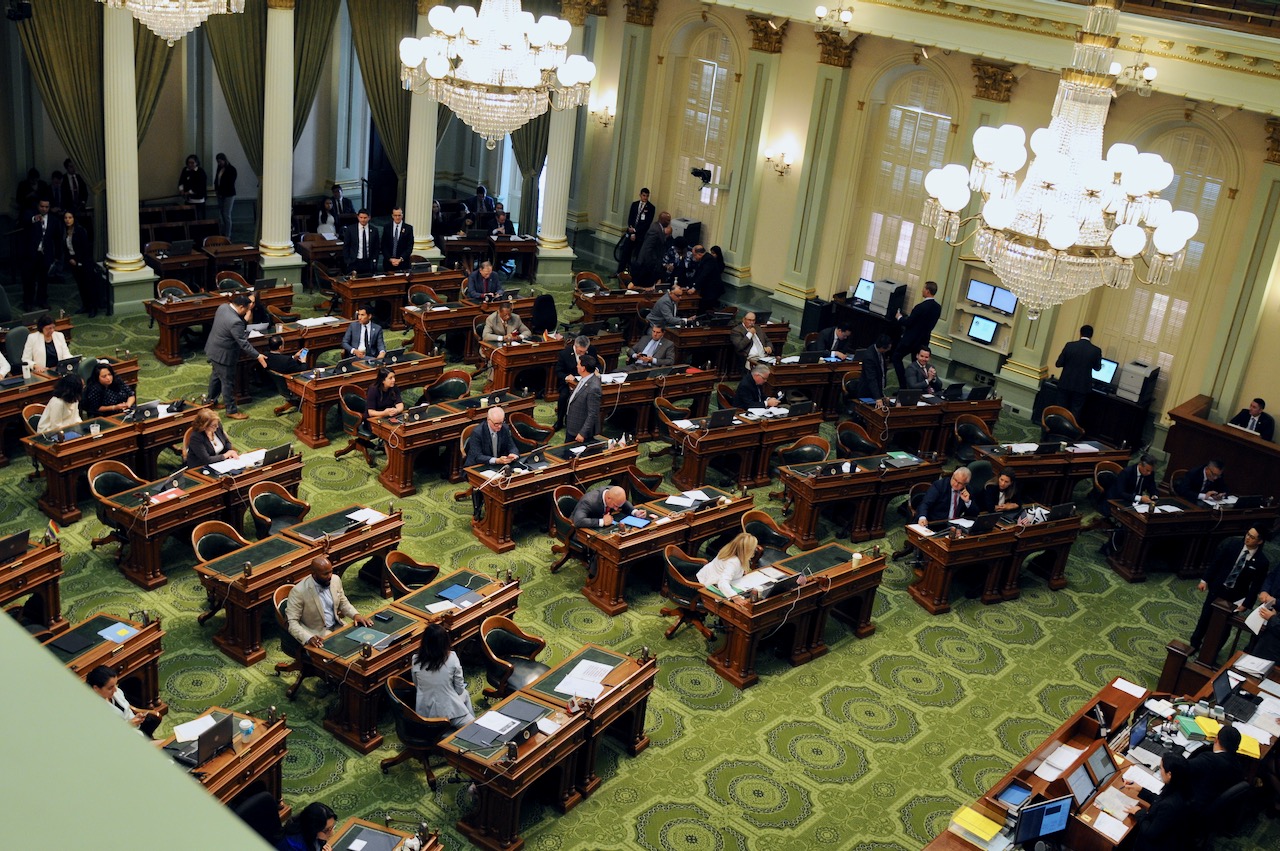
California State Capitol (Photo: Kevin Sanders for California Globe)
Operation of Statutes and Resolutions
Several code sections that set forth the operation of statutes and resolutions
By Chris Micheli, December 30, 2019 2:02 am
In California’s Government Code, there are several code sections that set forth the operation of statutes and resolutions. These statutes were enacted in 1943 and are found in Title 2, Division 2, Part 1, Chapter 6. The provisions of law are summarized below:
Effective Date of Statutes – Gov’t Code Sec. 9600
With the exceptions below, a statute enacted at a regular session goes into effect on January 1 next following a 90-day period from the date of enactment of the statute and a statute enacted at a special session goes into effect on the 91st day after adjournment of the special session at which the bill was passed.
Statutes calling elections, statutes providing for tax levies or appropriations for the usual current expenses of the state, and urgency statutes go into effect immediately upon their enactment.
Effective Date of Resolutions – Gov’t Code Sec. 9602
Every concurrent and joint resolution takes effect upon the filing of it with the Secretary of State.
General Rules of Statutory Construction – Gov’t Code Sec. 9603
The general rules for the construction of statutes are contained in the preliminary provisions of the different codes.
Restatements of Statutes – Gov’t Code Sec. 9604
When the provisions of one statute are carried into another statute under circumstances in which they are required to be construed as restatements and continuations and not as new enactments, any reference made by any statute, charter or ordinance to such provisions must, unless a contrary intent appears, be deemed a reference to the restatements and continuations.
Repealed Statutes – Gov’t Code Sec. 9605
If a section or part of a statute is amended, it is not to be considered as having been repealed and reenacted in the amended form. The portions that are not altered are to be considered as having been the law from the time when those provisions were enacted. The new provisions are to be considered as having been enacted at the time of the amendment. The omitted portions are to be considered as having been repealed at the time of the amendment.
When the same section or part of a statute is amended by two or more acts enacted at the same session, any portion of an earlier one of those successive acts that is omitted from a subsequent act is deemed to have been omitted deliberately and any portion of a statute omitted by an earlier act that is restored in a subsequent act is deemed to have been restored deliberately.
In the absence of any express provision to the contrary in the statute that is enacted last, it is conclusively presumed that the statute which is enacted last is intended to prevail over statutes that are enacted earlier at the same session and, in the absence of any express provision to the contrary in the statute that has a higher chapter number, it is presumed that a statute that has a higher chapter number was intended by the Legislature to prevail over a statute that is enacted at the same session but has a lower chapter number.
Vested Rights – Gov’t Code Sec. 9606
Any statute may be repealed at any time, except when vested rights would be impaired. Persons acting under any statute act in contemplation of this power of repeal.
No Revival of Repealed Statutes – Gov’t Code Sec. 9607
With the exceptions below, no statute or part of a statute, repealed by another statute, is revived by the repeal of the repealing statute without express words reviving the repealed statute or part of a statute.
If a later enacted statute that deletes or extends the date of termination or repeal of a previously enacted law is chaptered before the date of termination or repeal, the terminated or repealed law is revived when the later enacted statute becomes operative.
Termination or Suspension of Law – Gov’t Code Sec. 9608
The termination or suspension of any law creating a criminal offense does not constitute a bar to the indictment or information and punishment of an act already committed in violation of the law that is terminated or suspended, unless the intention to bar the indictment or information and punishment is expressly declared by an applicable provision of law.
Amending a Repealed Statute – Gov’t Code Sec. 9609
A statute amending a section of a repealed statute is void.
Fixing Public Salaries – Gov’t Code Sec. 9610
The fixing or the authorizing of the fixing of the salary of a State officer or employee by statute is not intended to and does not constitute an appropriation of money for the payment of the salary. The salary is paid only in the event that moneys are made available by another provision of law.
Suspended Provision of Law – Gov’t Code Sec. 9611
Whenever a provision of law is temporarily suspended, or is expressly or impliedly modified or repealed by a provision which is declared to be effective for only a limited period of time, the original provisions are not to be deemed repealed. However, upon the expiration of the time of the temporary suspension or the effectiveness of the inconsistent provision, then the original provision has the same force and effect as if the temporary provision had not been enacted.
Military Service Covered – Gov’t Code Sec. 9612
Whenever the terms United States Army, Army of the United States, United States Navy, or military service appear in a statute whether singly or any combination of them, the terms are deemed to include the United States Air Force.
- California Family Mediation and Conciliation Services - July 5, 2025
- Solemnization of Marriage in California - July 4, 2025
- Ship Managers in California - July 3, 2025







